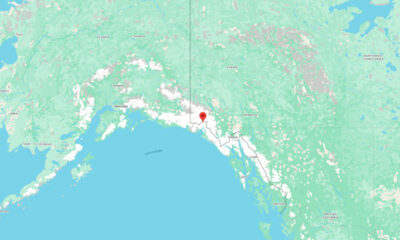Reviews
What Compensation Can You Claim in Wrongful Death Cases?

Losing a loved one to someone’s negligence or misconduct is a heartbreaking and painful experience for a family to endure. Such tragedies often bring overwhelming financial burdens beyond the emotional devastation. A wrongful death claim allows surviving family members to seek justice and financial compensation from those legally responsible. Understanding what damages to recover is the first step toward rebuilding stability after loss. Read on to learn more.
Understanding Wrongful Death Claims
You can file a wrongful death claim if someone’s negligent, reckless, or intentional actions cause an individual’s demise. These cases can stem from various incidents, such as car accidents, medical malpractice, workplace hazards, defective products, or even criminal acts. The claim is typically filed by close family members or the deceased’s estate to recover damages for those left behind.
Economic Damages: Tangible Financial Losses
Economic damages refer to the measurable financial impact caused by the person’s death. These are often the easiest to calculate because they rely on documentation such as pay slips, bills, and receipts. They include:
- Lost income and future earnings: A deceased’s lost income can create long-term financial strain if they were the primary breadwinner. Compensation may include the wages the individual would have earned up to their retirement age and the value of benefits such as pensions or health insurance. Courts often use expert testimony to estimate these future earnings, factoring in the person’s age, occupation, and career trajectory.
- Medical expenses: If the deceased received medical treatment before passing away, the family can claim reimbursement for hospital bills, surgeries, medications, and other healthcare costs. These expenses are recoverable even if they were paid through insurance, as the estate retains the right to seek full restitution.
- Funeral and burial costs: Funeral services, plots, and related costs can be substantial. Families can include these expenses in their claim to ease the immediate financial pressure following a death.
Non-Economic Damages
While financial losses are straightforward to quantify, the emotional and psychological suffering caused by a wrongful death is far more complex. Non-economic damages compensate for the intangible aspects of loss that you cannot measure in dollars alone. These are:
- Loss of companionship and consortium: This includes the loss of love, affection, care, and guidance that the deceased provided to their spouse, children, or parents. It recognizes the deep emotional void when a key family relationship is removed.
- Pain and suffering of the deceased: A victim’s estate can seek compensation if they endured pain or distress before their death. These damages serve as a recognition of what the deceased experienced due to the defendant’s negligence.
- Emotional distress of the family: Survivors can also recover damages for their own mental anguish, grief, trauma, and the long-term emotional impact of losing a loved one suddenly and unjustly.
Punitive Damages: Deterring Future Negligence
Courts may award punitive damages in cases where the defendant shows exceptionally egregious behavior. This can be drunk driving or gross medical negligence. These are not to compensate the family but to punish the culprit and prevent anything similar from happening in the future. While not available in every jurisdiction, punitive damages can significantly increase the compensation in a wrongful death case.
Who Can File a Wrongful Death Claim?
The right to file a wrongful death claim varies by jurisdiction. Typically, spouses, children, and parents of the deceased have priority. In some regions, other dependents or the estate executor can file a lawsuit on behalf of all beneficiaries. Understanding these eligibility rules is essential, as only specific individuals are legally recognized as rightful claimants.
If you are uncertain about your eligibility or the process, consulting a lawyer for wrongful death can help clarify your rights, determine the strength of your case, and ensure no critical deadlines are missed.
How Compensation Is Calculated
Calculating damages in wrongful death cases involves both legal and financial expertise. Courts consider several factors to calculate the money, including:
- The deceased’s income, education, and age
- Life expectancy and health before the incident
- The nature of family relationships and dependency
Expert witnesses, such as economists or vocational specialists, often help determine fair compensation that reflects both present and future losses.
Endnote
No amount of money can replace a lost loved one. However, rightful compensation can help families cover expenses, secure financial stability, and hold negligent parties accountable. It also serves as a vital acknowledgment that the deceased’s life had value, both emotionally and economically.
Seeking legal advice early ensures you understand your rights and timelines. An experienced wrongful death attorney can handle the complex paperwork, negotiate with insurance companies, and fight for a settlement that reflects the true impact of your loss.

-

 Health4 days ago
Health4 days agoFrance confirms 2 MERS coronavirus cases in returning travelers
-

 Health6 days ago
Health6 days ago8 kittens die of H5N1 bird flu in the Netherlands
-

 Entertainment4 days ago
Entertainment4 days agoJoey Valence & Brae criticize DHS over unauthorized use of their music
-

 Legal1 week ago
Legal1 week ago15 people shot, 4 killed, at birthday party in Stockton, California
-

 US News6 days ago
US News6 days agoFire breaks out at Raleigh Convention Center in North Carolina
-

 Health1 week ago
Health1 week agoMarburg outbreak in Ethiopia rises to 12 cases and 8 deaths
-

 US News1 day ago
US News1 day agoMagnitude 7.0 earthquake strikes near Alaska–Canada border
-

 Health5 days ago
Health5 days agoEthiopia reports new case in Marburg virus outbreak



